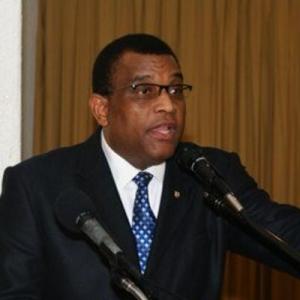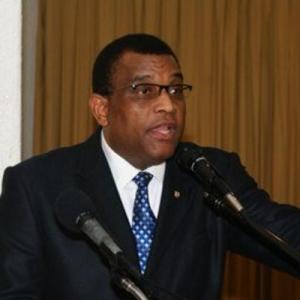Article Information
- ARTICLE_POSTED_BY: Haiti Place Staff
- ARTICLE_POSTED_ON: Jun 29, 2015
- Views : 1434
- Category : Business
- Description : <strong>Many members of the Diaspora wonder if they can get personal or business loans for their projects in Haiti, and what other financial services they can benefit from over there</strong>.
Overview
 Marcel Fontin
Marcel FontinMany members of the Diaspora wonder if they can get personal or business loans for their projects in Haiti, and what other financial services they can benefit from over there.
Marcel Fontin, former chairman of the Banque de l'Union Haïtienne (BUH), explains the challenges and how the Diaspora members can best collaborate with the Haitian banks.
It's not easy for the Diaspora to get loans in Haiti
Currently, getting a loan from a Haitian bank is not the easiest task for a member of the Diaspora. Fontin explains that for the bank to give a loan to someone it needs to have some specific information about this individual. Because members of the Diaspora live abroad, the bank does not have access to such critical information as the person's credit report, for example. The US credit reports cannot be transferred to another country.
Not enough information is one of the reasons why the Haitian banks consider it risky to loan money to people living abroad.
Start by establishing a relationship
Marcel Fontin advises members of the Diaspora who are active in Haiti to start building a relationship with a local bank by opening an account.
"The key is to develop good value relationship: for you to get to know the bank, and for the bank to get to know you, by having an account,” noted Mr. Fontin.
Developing the relationship with your bank
The relationship you open with a bank in Haiti can be nurtured and developed.
Marcel Fontin gave an example of a successful collaboration between the bank he worked for, BUH, and the Haitian Diaspora.
BUH was the only bank to offer direct deposits for members of the Diaspora who are retiring in Haiti. Through their accounts in Haiti they could receive their US Social Security money. The bank had an agreement with another bank in New York and the US and Haitian Embassies to be able to do so.
Fontin noted that this type of collaboration can be extended. For example, members of the Diaspora who are already receiving their US retirement money through their bank accounts in Haiti may work an agreement with the bank and get loans that will be paid from the money they receive monthly from the US.
"First and foremost it begins with establishing a relationship, building some kind of trust between the bank and members of the Diaspora that can gradually grow into more things," pointed out Mr. Fontin.
Coming as a community
Marcel Fontin is certain that by forming groups and associations, members of the Haitian Diaspora can have better negotiations with the local banks in Haiti where both sides could benefit.
"You can achieve a lot by putting yourself in groups and approach the bank. I think the banks would be more up to listen to you if they know there is a certain group coming in to sit down to build a relationship," shared Mr. Fontin.
Funding a business in Haiti
Giving business loans carries higher risks for a bank than offering personal loans, which is why banks may be even more conservative when it comes to financing businesses.
Marcel Fontin suggests that a great alternative is financing your business through such international institutions as the Overseas Private Investment Corporation (OPIC) and International Finance Corporation (IFC).
OPIC is an "independent" U.S. Government agency that provides financial products such as loans and guaranties, political risk insurance, and support for investment funds to help American businesses expand into emerging markets. It offers loans of up to $250 million and it requires that at least 25% of the financed business to be owned by an American company.
"It could be a great possibility to reach the Diaspora to invest in Haiti," said Fontin.
----
Marcel Fontin started his banking career in 1981 with Bankers Trust Company in New York, and has held several senior level positions in many banks in the USA.
In 2005 he created his consulting company called MF Financial Consulting Inc., which was the first Haitian American company to become a consultant to OPIC.
In 2008 he got the offer to lead the restructuring effort of the Banque de l'Union Haïtienne. He was the Chairman and President of BUH until 2013, and later acted as the bank's board member and consultant.
Upon returning to the US in 2014, Fontin created another company called MF Financial Advisers to help small- and medium-size enterprises manage their finances, restructure, help with growth projections, growth management, and to obtain funding.
